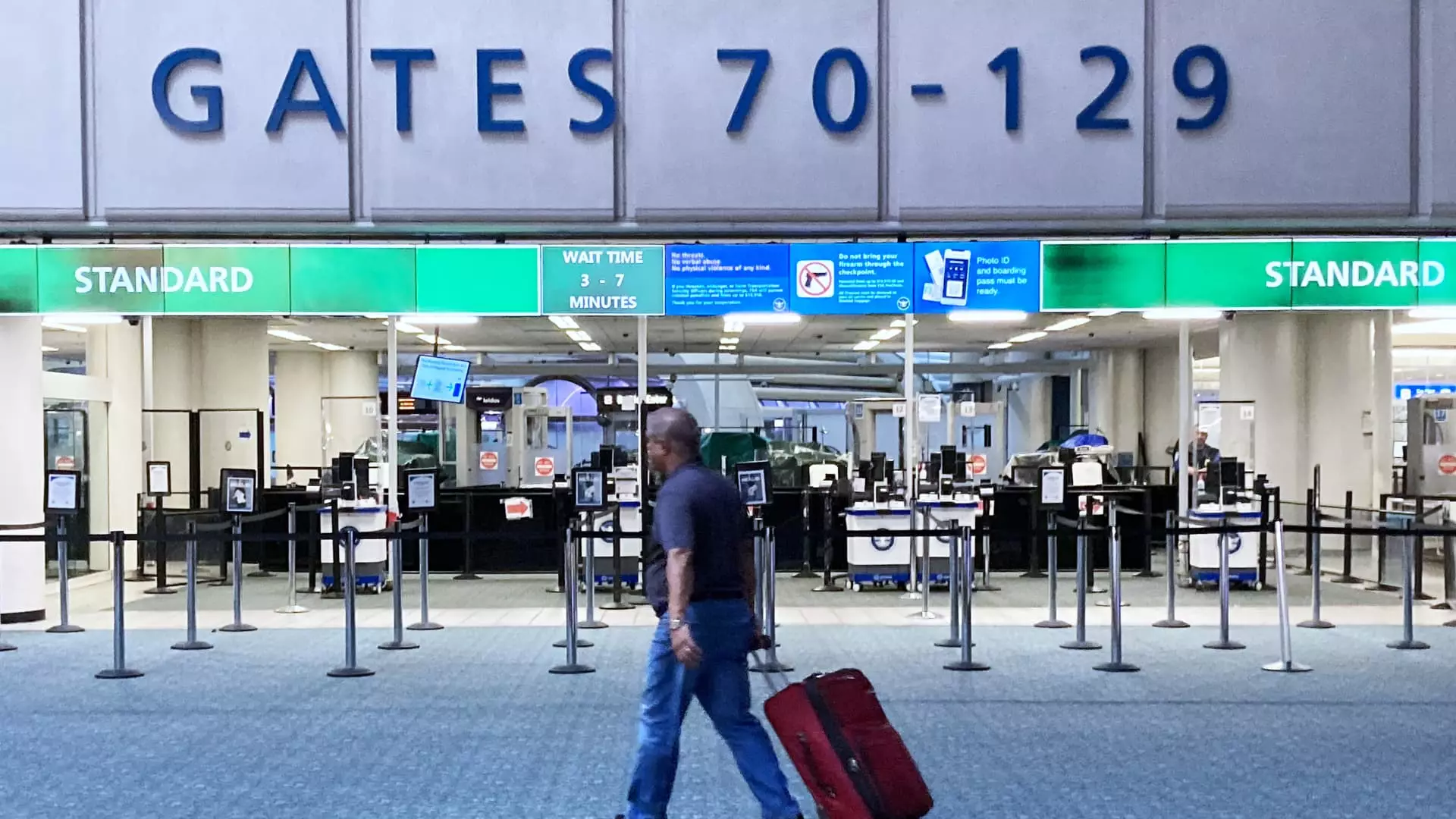As the holiday season arrives, a potentially disruptive government shutdown looms over the U.S., threatening not just legislative stagnation but significant implications for the travel industry and countless government employees. With lawmakers failing to reach a compromise on funding, the specter of a shutdown could emerge as early as midnight on Saturday, leaving many to grapple with the consequences.
The failure to pass a short-term spending bill has placed the country on edge, as key discussions falter amongst lawmakers. The stakes are high; without a workable budget, hundreds of thousands of government workers may face furloughs while critical services remain at risk. This impasse comes just as millions of Americans prepare to travel during one of the busiest seasons of the year, making the situation particularly precarious. The U.S. Travel Association estimates that the financial fallout could reach $1 billion weekly, a staggering figure that underscores the far-reaching implications a shutdown could have on the already beleaguered travel sector.
Geoff Freeman, president of the U.S. Travel Association, has pointed out the ironic situation where members of Congress stand to gain little from forcing frontline workers, such as TSA personnel and air traffic controllers, to perform their duties without pay during the peak holiday season. Given the high volume of travelers expected, the impact of such a shutdown could create chaos at airports, rather than the orderly processes that holiday travelers typically hope for.
Interestingly, while the chaos of a government shutdown brews, airlines across the nation are forecasting unprecedented demand this holiday season. Major airlines like United Airlines anticipate an increase of 12% in passenger numbers compared to last year, with nearly 10 million people expected to fly between December 19 and January 6. Despite the grim forecast of a government shutdown, air travel operations should continue, although without the guarantee of timely payments for those ensuring safety and service in the air.
The Transportation Security Administration (TSA) remains committed to its mission and intends to manage the flow of holiday travelers, anticipating more than 40 million screenings over the holiday period. However, these efforts could come with complications. TSA Admin David Pekoske has stated that TSA agents will continue to work without compensation if the shutdown occurs, a situation that raises significant concerns about staffing morale and efficiency. The potential for longer wait times at airports could deter families excited for holiday travel or disrupt business travelers keen on timely arrivals.
Recent history highlights the dangers of a drawn-out government shutdown for the travel industry. The longest lapse in funding occurred from late 2018 through early 2019 and led to severe disruptions. Air traffic controllers facing job dissatisfaction and minimal manpower dealt the industry a hefty blow during that period. With air traffic congestions and increased call-outs, the ramifications were felt across the entire aviation ecosystem.
The current situation is further complicated by a leadership vacuum within the Federal Aviation Administration (FAA), as current head Mike Whitaker prepares to step down. This administrative uncertainty raises questions about the ability to implement necessary reforms and respond effectively to the challenges posed by increased air traffic. Delta Air Lines CEO Ed Bastian has stressed that the incoming FAA administrator must prioritize modernization of air traffic control systems and workforce expansion.
The prospect of a government shutdown during the holiday season introduces a multifaceted dilemma for travelers, government employees, and the broader economy. The political infighting in Congress risks not only the livelihoods of countless workers but could also unleash chaos within the travel industry as operational effectiveness is challenged. As families prepare for what should be joyful reunions, the looming uncertainty serves as a sobering reminder of the interconnectedness of governance and daily life. Moving forward, stakeholders in government and aviation must collaborate to ensure stability and support as the nation navigates these turbulent waters.

Leave a Reply